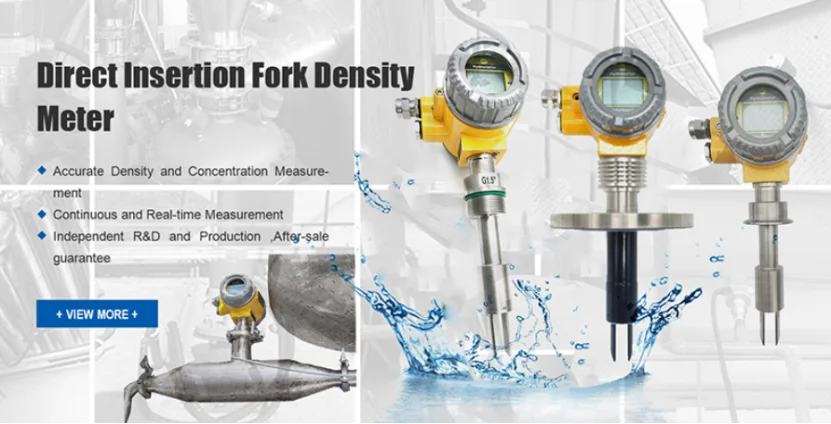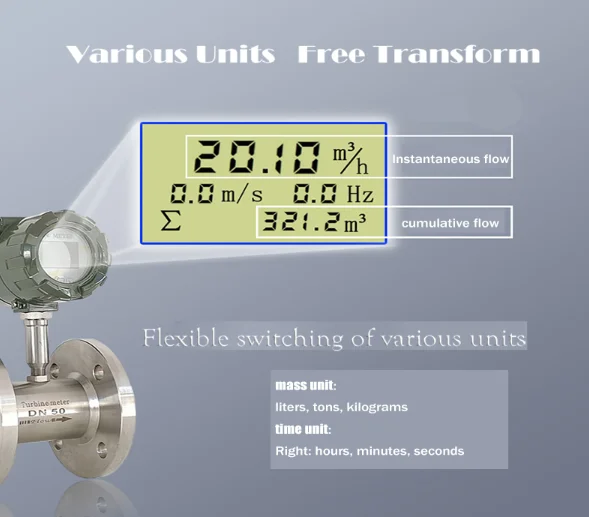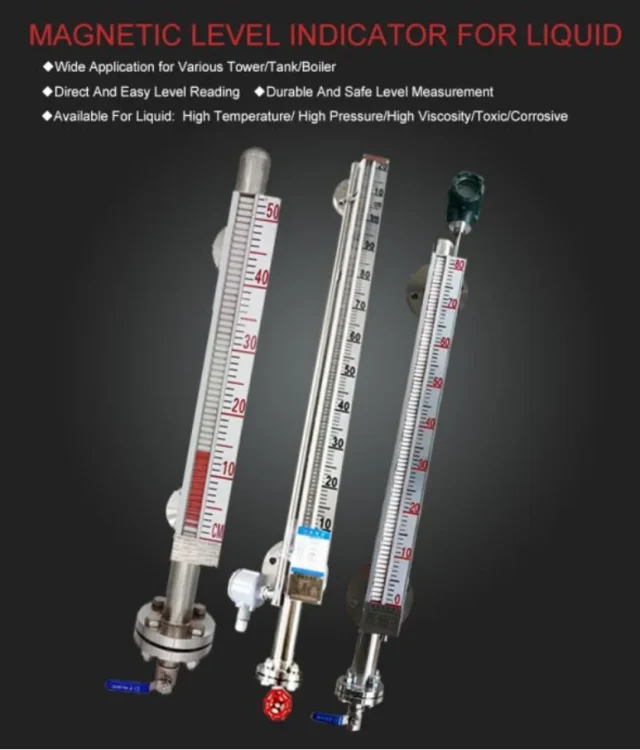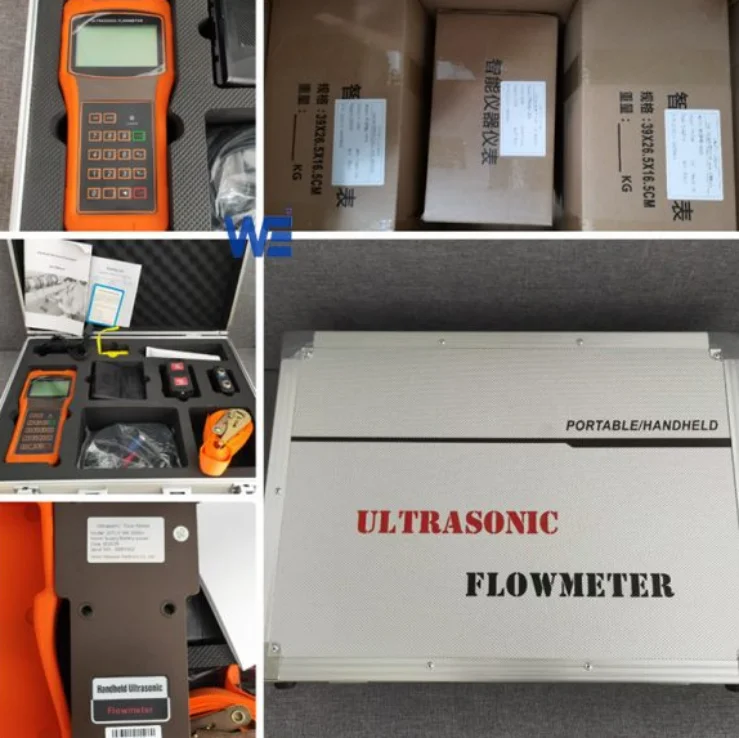- Have any questions?
- +86 15953537010
- admin@wepower-electronic.com
1)Key Factors to Consider in a Density Meter for Liquids
Importance of Accuracy and Precision in Measurements
Accuracy and precision are very important when picking a density meter for liquids. These tools are used in important tasks like checking quality, processing chemicals, and making medicines. Getting steady and correct readings makes sure products meet rules and please customers. For example, the WPX301 Tuning Fork Density Meter is built to give very exact measurements of density, concentratn and temperature in tough conditions. These density meters use vibrating fork technology to offer dependable direct insertion measurements. Such precision reduces mistakes in tasks like mixing fuel oil or controlling heater burning.
The Role of Temperature Compensation in Density Sensors
Temperature compensation is a key thing to think about. Liquid density can change a lot with temperature shifts, which can mess up measurement accuracy. Good density sensors, like the Tuning Fork Density Meter, have built-in temperature sensors to fix readings on the go. For instance, the WPX301 density meter has RTD PT100 technology for exact temperature measurement. This feature keeps results steady even when temperatures go up and down. It’s great for industries like petrochemicals and food processing.
Compatibility with Different Liquid Types
Being flexible is important for a density meter for liquids. The tool should work with many liquid types, including harsh or hot ones. For example, the Chemical Density Meter has anti-corrosive coatings like PTFE or PFA to handle strong, corrosive liquids. Also, special models like the high-temperature type density meter are suggested for liquids hotter than 100 degrees Celsius. This flexibility makes the device useful in many industries.
2)Technical Specifications of Digital Density Meters
Measurement Range and Resolution Capabilities
The measurement range and resolution are big factors in choosing a density meter for liquids. A wide range lets the device measure different densities levels correctly. For example, the WPX301 has a density range from 0 to 3,000 kg/m³ with an accuracy of ±1 kg/m³. Its repeatability of ±0.1 kg/m³ makes sure it gives steady results every time.
Integration with Automated Systems
Modern digital density meters often connect to automated systems for better use. The WPX301 supports analog (4-20 mA) and Modbus RS-485 connections for easy linking. Features like live displays with two-line LCDs help operators see data right away. Also, optical switches let users set up the device in dangerous areas without risking safety.

3)User-Friendly Features in Density Sensors
Ease of Calibration and Maintenance
Easy calibration and upkeep are important in modern density sensors. Devices like the Tuning Fork Density Meter are made to make these tasks simple. Users can change settings like zero point, span, damping, and display output using buttons on the panel. This easy setup cuts downtime and keeps the density meter for liquids working well. Also, some models have automatic calibration to avoid mistakes. Maintenance is easier with strong materials like zirconium connections, which stay tough in harsh places.
Portability and Compactness for Various Applications
Portability makes a density meter for liquids more useful. Small designs let these tools work in labs or industrial pipelines. For example, Wepower Electronic’s WPX301 Density Measurement Instrument fits in both open and closed tank setups because of its small size. This flexibility helps industries like petrochemicals, medicines, and food processing use these devices easily.
4)Advanced Functionalities in Modern Density Meters for Liquids
Data Logging and Connectivity Options
Today’s density meters for liquids have smart data logging to save measurement history for study. The WPX301 supports analog (4-20 mA) and Modbus RS-485 connections. These options make it easy to connect to automated systems for remote watching and control. Saving data over time helps with trend study and planning maintenance, keeping processes running smoothly.
Real-Time Monitoring and Analysis Features
Real-time monitoring is very important for industries needing quick updates on liquid properties. Devices like the Vibration Fork Density Meter use vibrating fork technology to give instant measurements right in the liquid. A built-in temperature sensor adjusts for temperature changes to keep measurements correct. This is helpful for tasks like pipeline monitoring or finding reactor endpoints.
5)Frequently Asked Questions
What industries benefit most from using a Differential Pressure Density Meter?
A Differential Pressure Density Meter is very helpful in industries like petrochemicals, medicines, food processing, and mineral processing. It gives correct density readings needed for quality checks and better processes.
How does vibrating fork technology improve measurement reliability?
Vibrating fork technology makes measurements more reliable by putting vibrating tines into the liquid. The vibration speed changes with liquid density, giving exact real-time results for many uses.
Are there options available for handling high-temperature liquids?
Yes, high-temperature type WPX301 Density Meter are made to measure liquids over 100 degrees Celsius well without losing accuracy or strength.
Can modern density meters handle corrosive substances safely?
Modern devices like the Tuning Fork Density Meter often have anti-corrosive coatings like PTFE or PFA. These keep the density sensor safe and accurate when handling harsh liquids.
Where can I find more information about Wepower Electronic’s products?
Wepower Electronic, located in the coastal city of Yantai, has been making automated tools since 2003. With skilled staff offering 24-hour help on workdays, they provide custom solutions for many industry needs.





